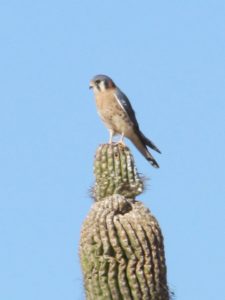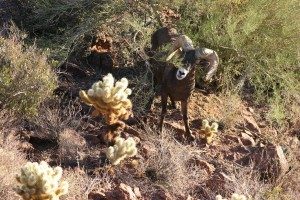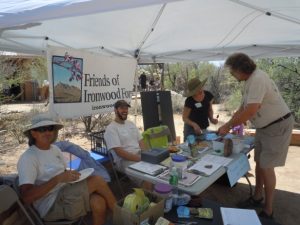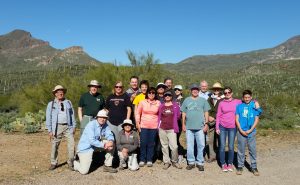Source: Arizona Game and Fish Press Release, July 25, 2017
The Wildlife for Tomorrow Foundation, together with the Arizona Game and Fish Department, will induct five individuals into the Arizona Outdoor Hall of Fame. Wildlife for Tomorrow was created in 1990 to enhance the management, protection and enjoyment of Arizona’s fish and wildlife resources. The foundation is an independent 501(c)(3) nonprofit organization that works closely with the Arizona Game and Fish Department to provide additional support for projects and education activities where traditional resources are not adequate.
foundation is an independent 501(c)(3) nonprofit organization that works closely with the Arizona Game and Fish Department to provide additional support for projects and education activities where traditional resources are not adequate.
The Arizona Outdoor Hall of Fame was developed in 1998 by the Wildlife for Tomorrow Foundation to honor those who have made significant contributions to Arizona’s wildlife, the welfare of its natural resources and the state’s outdoor heritage. The Foundation’s 20th Annual Hall of Fame induction ceremony will take place during the annual Arizona Outdoor Hall of Fame Banquet on Saturday, Aug. 19, at the Embassy Suites Scottsdale at 5001 N. Scottsdale Road in Scottsdale.
The inductees for this year’s event include:
- Steve Hirsch, of Phoenix, is being inducted posthumously. Steve was a prominent attorney, avid outdoorsman and the son of Bob Hirsch, a prior Hall of Fame inductee and acclaimed outdoors columnist. Steve’s passion for Arizona and its wildlife led him to serve as a director and the president of the Wildlife for Tomorrow Foundation for more than 16 years. Steve’s leadership and vision provided the driving force for Wildlife for Tomorrow as it worked closely with the department to support projects that benefited the management and enjoyment of Arizona’s fish and wildlife resources, youth educational activities and projects that made a difference to wildlife habitat in our state.
- Larry Voyles, of Phoenix, has devoted his 43-year career to wildlife conservation and outdoor heritage, including nine years as director of the Arizona Game and Fish Department. He began his career with AZGFD as a wildlife manager and in 2008 was selected as the agency’s director. He worked to modernize the department and unified the 50 states’ conservation agencies to improve wildlife conservation efforts nationwide. He is a national leader in shooting sports, recruitment and retention.
- Jean Wilson, of Yuma, who has served Yuma County readers for decades through her outdoors column in the Yuma Sun and has dedicated her life to encouraging families and children to appreciate the outdoors. She regularly runs clinics and classes designed to get people to enjoy fishing, hunting and archery.
- Steve Clark, of Glendale, who is a founding member of the Arizona Elk Society and has worked tirelessly for the past 17 years to carry the organization and its mission forward. He also serves on the Arizona Livestock Recovery Board and the Arizona Natural Resources Committee, was recognized as Civilian Conservationist of the Year in 2010 by the Western Association of Fish and Wildlife Agencies, and Conservationist of the Year in 2015 by the Arizona Game and Fish Department.
- Warner Glenn, of Douglas, a fourth-generation Arizona cattle rancher who operates two ranches in Cochise County. In addition to ranching, he operates the hunting guide service established by his father – legendary hunter Marvin Glenn. In 1991, Warner Glenn was among the founders of the Malpai Borderlands Group, a conservation ranching organization that established a system of scientific-based ecosystem management on more than 1 million acres of ranch land in southeastern Arizona and southwestern New Mexico.





You must be logged in to post a comment.